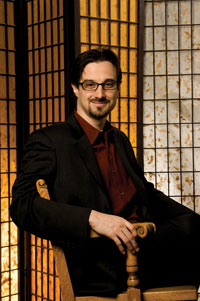
Mary Levin photo
As told to Jonathan Kiefer

On the very first day of class, I write a little computer program, where you feed it numbers and it spits out numbers and sometimes yes-or-no answers. I've programmed it to do certain things, but I don't do much in the way of explanation. I just give students free rein to start thinking about what this box is doing. And then of course they want to know the answer. And as hard as it is—because I'm sympathetic to wanting to know the answer—I don't tell them. I don't tell them what the program did. Because this is already much more than you'd be given in a natural system. You're given only the sort of agreement between your ideas and the data that you happen to have. So you'd love to have Truth with a capital ‘T,' but you've got truth with a little, provisional ‘t.' And you're contributing to a continually evolving, continually changing set of ideas about the natural world that can always embrace new data points. There is something empowering and liberating about that. If you're an experimentalist, what you do is manipulate and then listen. You take an active role in creating a world, and then you listen to what the created world tells you. But it's still fundamentally about listening. And not having somebody tell you the answer.